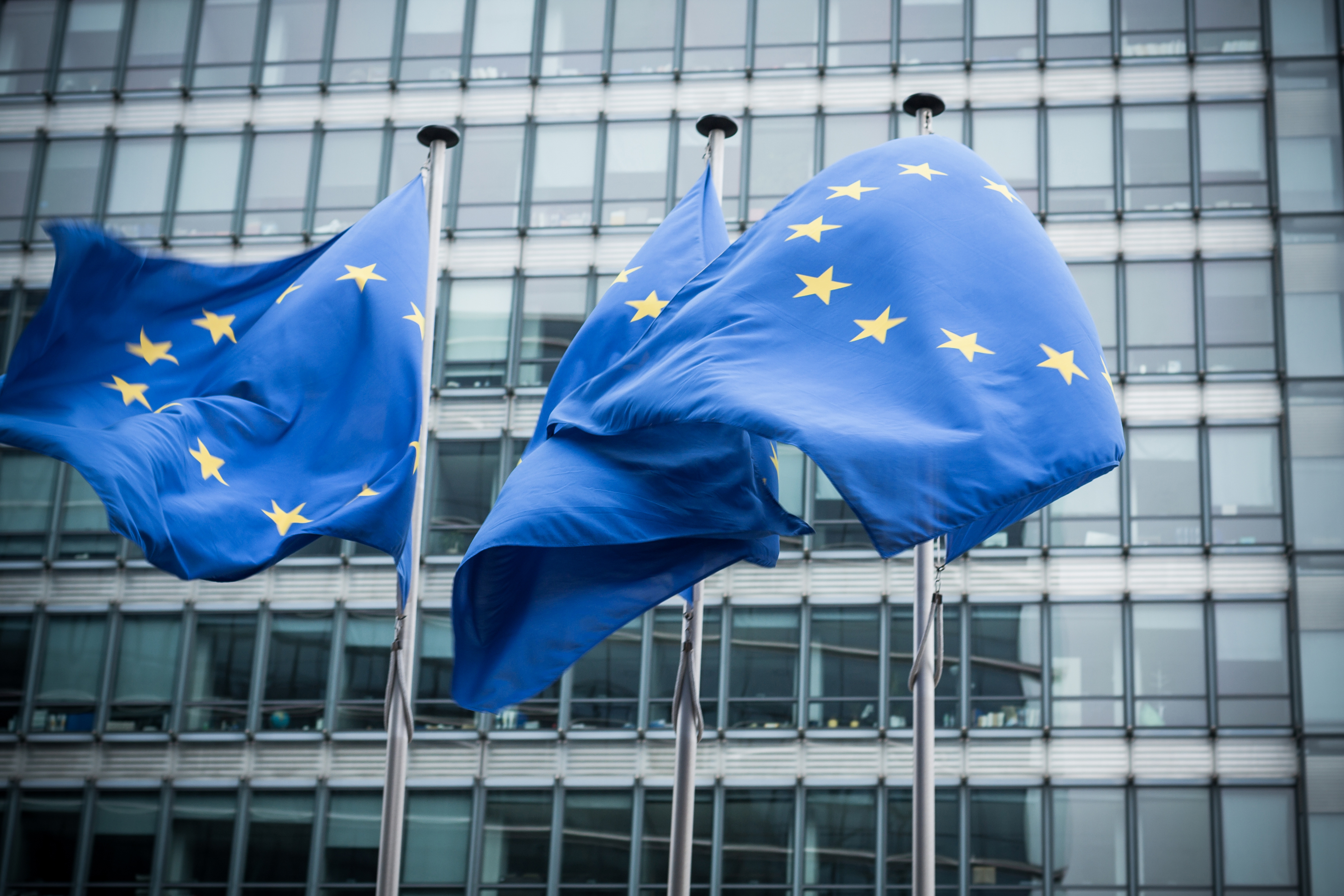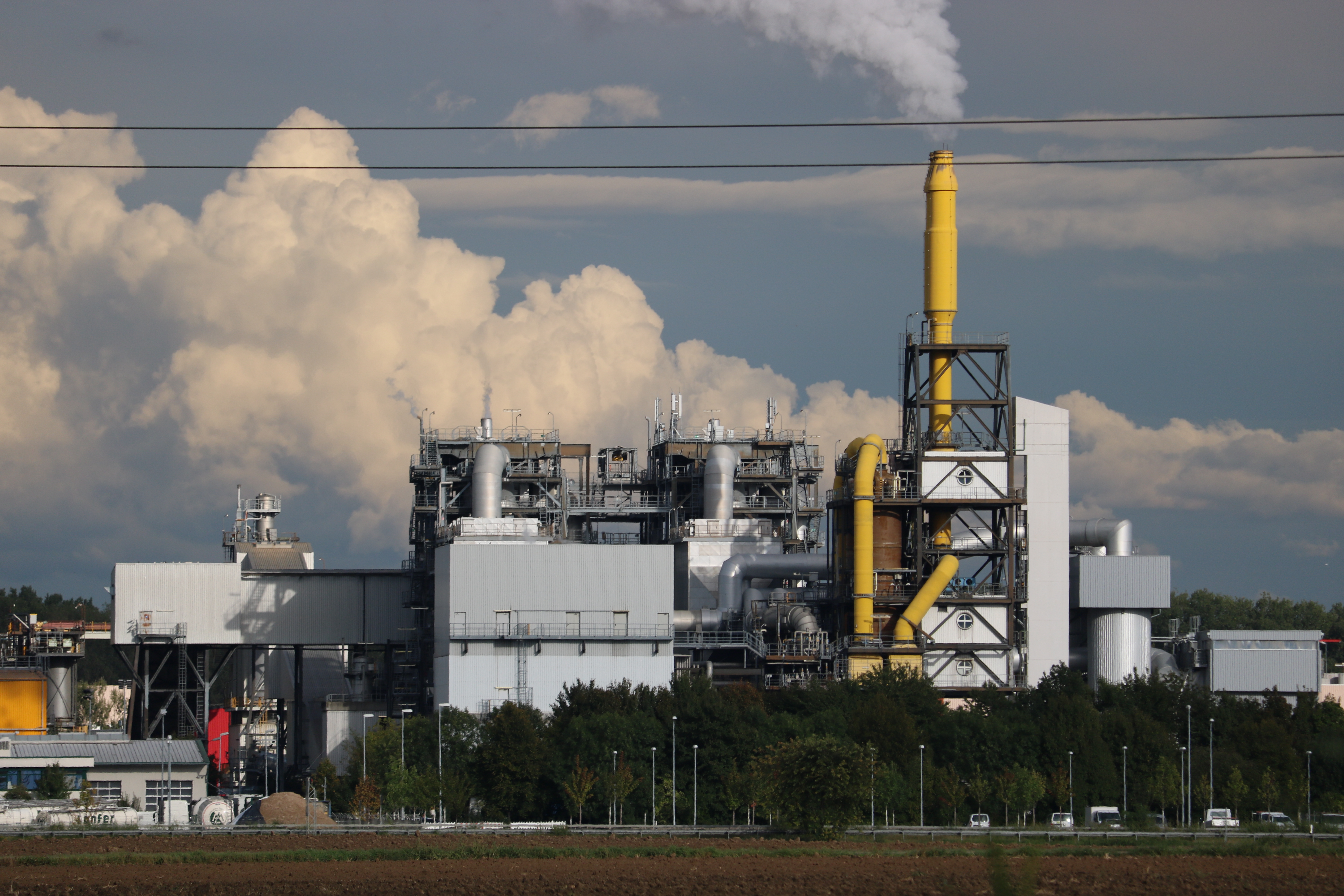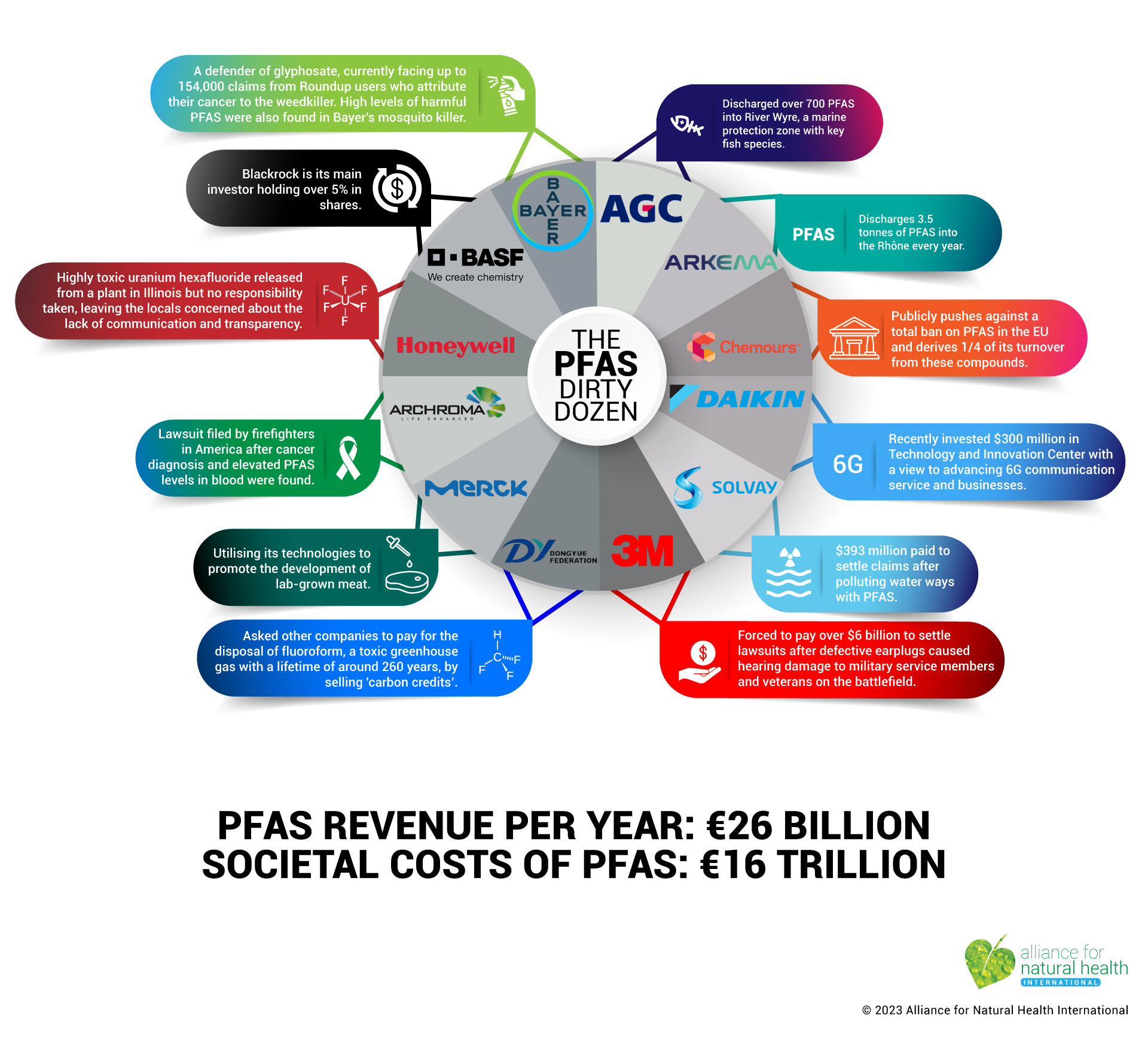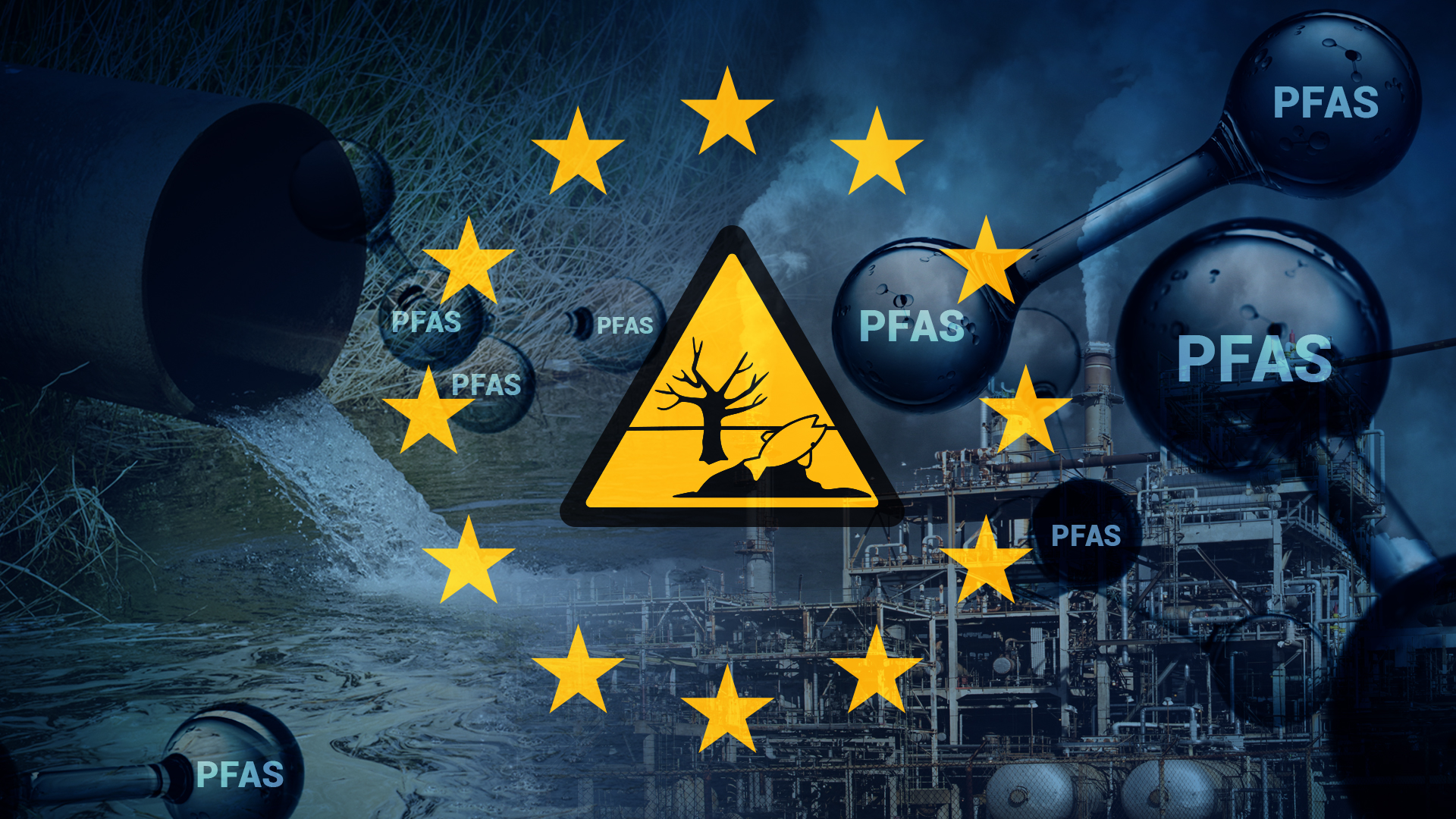By Paraschiva Florescu, mission facilitator at Alliance for Natural Health Intl
The European Commission has just released its work programme for 2024 with the usual broad and undefined promises of ‘delivering today and preparing for tomorrow’.
You may be surprised (or not) to hear that despite the Commission’s claims of “urgency to protect and preserve our planet”, the word ‘chemicals’ is only mentioned once in the whole fifteen page document (and only in relation to labelling and packaging of chemicals in order to advance towards zero pollution and protect and restore nature), whilst the words PFAS, or per- and polyfluoroalkyl substances, or "forever chemicals", are not mentioned at all. The document also seems to have forgotten about the promises for a targeted revision of the Regulation on the Registration, Evaluation, Authorisation and Restriction of Chemicals (REACH Regulation) which were part of the 2023 work agenda but seem to have been brushed under the carpet. Presumably in the hope that none of us will notice. The fact that The Guardian newspaper has noticed tells us that we're not on our own thinking there's a policy U-turn in the making.
The implications of these omissions are deeply disturbing considering the potential impacts on us, our children, and the millions of species with which we share our planet. These chemicals accumulate in our bodies causing diseases from cancer, thyroid disease and immune damage, delayed mammary gland development, liver damage and a plethora of other untoward effects. They also harm wildlife as documented by this recent study published in Science of the Total Environment which shows how PFAS exposure is impacting the health of polar bears, whales and other Arctic species. Swallows are failing to reproduce, sea otters have an increased number of infections, and polar bears have raised levels of steroids in their brains affecting their ability to reproduce. But the EU doesn’t seem concerned that these issues are serious enough to make it into their schedule. When it comes to the environment, better to keep everyone's focus on one invisible gas that's 'inhaled' by all plants: carbon dioxide.

The architecture of the proposed PFAS ban
The European Chemicals Agency (ECHA) proposed a restriction on PFAS in January 2022 for use in firefighting foams, a proposal supported by its scientific committee and finalised in June this year. Several countries set limits for PFAS values in water and soil, including Denmark, Germany, the Netherlands, Sweden and for textiles in Norway. RIVM, the Dutch National Institute for Public Health and the Environment, an organisation that advises policy departments (including the European REACH and food safety regulations), which conducts scientific research to derive risk limits for different chemicals, recognises the dangers of PFAS and has been the key institution bringing parties together to craft an EU legislative proposal for a near-total restriction of PFAS use, other than a few limited, mainly medical, uses.
More than 4,400 organisations, companies and individuals submitted over 5,600 comments on the PFAS restriction proposal on 13th January 2023. These are currently being evaluated by the Risk Assessment (RAC) and Socio-Economic Analysis (SEAC) of the European Chemicals Agency. It will then deliver a final opinion to the European Commission, which, together with EU Member States, will decide on the further steps of whether or not to restrict or ban PFAS chemicals, and if so, how that will look.
Or at least that was the original plan, but with the lack of inclusion or detail around the proposed ban in the 2024 work programme, it looks like the Commission will be prioritising, what it (or maybe industry) considers to be, other more pressing issues than forever chemicals poisoning our planet and humankind. More important issues such as the approval of gene edited plants and new genomic techniques as well as the development of artificial intelligence tools and large language models, all of which pave the way for more totalitarian control and appear to be part of the assets required to seamlessly usher in the transhumanist agenda.

Pressure from the chemical industry
The suspicious omission of PFAS from the Commission’s work schedule is deeply unwelcome yet unsurprising given the might of the chemical industry, which includes mega-powers like BASF, the world's largest chemical producer, which has a record of influencing policy for its own ends without due regard for people or planet. This is reflected in Germany’s chemical industry association Verband der Chemischen Industrie (VCI)’s budget of €9 million to influence domestic politicians and 64 active lobbyists all pushing against a ban on PFAS. The VCI’s members include BASF and Bayer, two of the 12 companies that made it onto the 'PFAS Dirty Dozen' list and the top producers of these incredibly toxic and persistent chemicals. BASF is a political powerhouse whose roots might send a shiver down our collective spines as it was one of the companies divested from IG Farben after the Nuremberg trials, using slave labour from the Auschwitz concentration camps, to make chemicals. An IG Farben, Degesch, was also the manufacturer of the pesticide Zyklon-B that was used in the gas chambers. Despite the well recognised hazardous effects of forever chemicals, BASF continues to produce these along with toxic pesticides, staying faithful to its mantra of profit over people and planet.

What now?
- We must educate people about PFAS. Many people are still unaware of this insidious chemical blight that is impacting all people and all wildlife on our planet. In a world in which shadow banning of any information that is counter to the will of the corporatocracy is rampant, individuals need to share articles like this with their own social networks. We thank you in appreciation of efforts you make in this vein.
- We have to maintain pressure on authorities. Maybe the EU thinks we won’t notice its omission. Even though a mention of the ban on PFAS was nowhere to be seen in the next year’s agenda, an EU official stated that “it doesn’t prevent the college [of EU Commissioners] from adding it to the agenda at a later stage”. We have to keep discussing the consequences of not progressing with the universal restriction of the entire class of PFAS chemicals as more and more evidence comes to light on the adverse health effects of these toxic chemicals.
- We have to minimise our exposure to PFAS. That means using PFAS free cookware and products.
- We have to come together with other organisations including ANH USA’s BAN PFAS campaign and lobby national parliaments as well as the European Parliament level.
Keep an eye on our newsletters for further advocacy opportunities, action alerts and more.
Read more about PFAS
>>> The PFAS ‘Dirty Dozen’ Exposed
>>> PFAS: The unfolding chemical disaster
>>> If you’re not already signed up for the ANH International weekly newsletter, sign up for free now using the SUBSCRIBE button at the top of our website – or better still – become a Pathfinder member and join the ANH-Intl tribe to enjoy benefits unique to our members.
>> Feel free to republish - just follow our Alliance for Natural Health International Re-publishing Guidelines
>>> Return to ANH International homepage








Comments
your voice counts
There are currently no comments on this post.
Your voice counts
We welcome your comments and are very interested in your point of view, but we ask that you keep them relevant to the article, that they be civil and without commercial links. All comments are moderated prior to being published. We reserve the right to edit or not publish comments that we consider abusive or offensive.
There is extra content here from a third party provider. You will be unable to see this content unless you agree to allow Content Cookies. Cookie Preferences